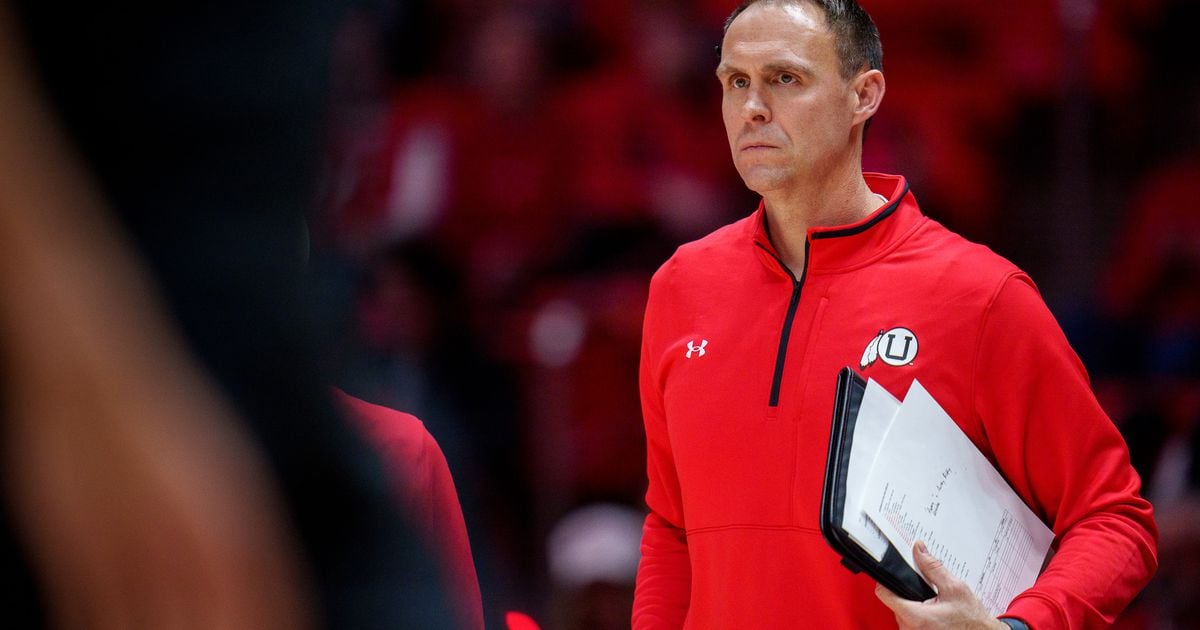In the winter of 2022, the private company behind a plan to dredge Utah Lake and turn it into an island city sued a leading critic, ecology professor Ben Abbott, for defamation.
The scientist crowdsourced funds to countersue a month later. He alleged the company was trying to stifle legitimate public debate about the proposal. Then, months later, Abbott found out his grant for a $500,000 watershed study in Utah County funded by the Legislature had been canceled.
“We were totally taken by surprise,” said Abbott, who teaches at Brigham Young University. “It was so abrupt and contrary to the feedback we were getting. I thought, ‘Does this have something to do with the islands situation?’”
Through his litigation, Abbott found some answers.
Supporters of Lake Restoration Solutions, or LRS, appeared poised to go to great lengths to secure public money for their real estate project, including pressuring lawmakers to retaliate against Abbott, text messages show.
The loss of the grant wasn’t the only thing to happen to critics of the project. Cities that publicly denounced LRS’ artificial island-building plan got demoted on the Utah Lake Authority board or lost their seat at the table altogether. And Utah County residents who raised questions about the involvement of state officials and lawmakers in Utah Lake said their concerns met with threats of retribution.
“This is just a few people who are sour grapes about the island project not being successful,” Abbott said. “Then they’re able to do this much damage. That’s a big red flag.”
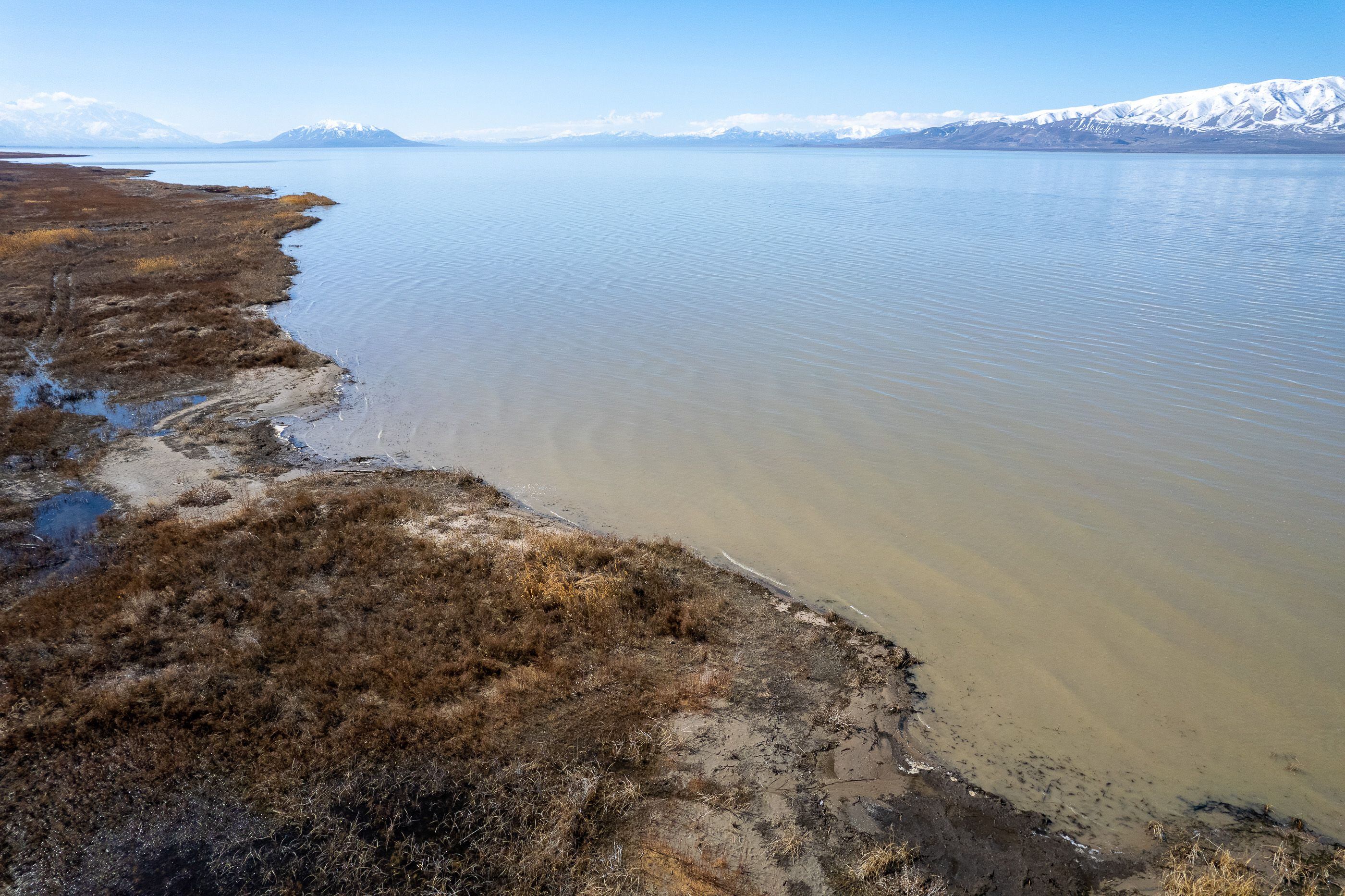
A judge threw out the defamation suit against Abbott earlier this year. But details keep emerging about the depth of LRS’ influence, partly because of Abbott’s counterclaim. LRS filed for bankruptcy in July.
LRS CEO Ryan Benson did not respond to a list of questions sent to his attorney for this story.
“I don’t know if this has set us back a decade or a century to help Utah Lake be its best self,” Abbott said. “It has been a colossal waste of resources. The question I keep coming back to is: Why? Why did this happen?”
‘This was not a coincidence’
During the winter of 2021-2022, the debate over Utah Lake’s future amplified. LRS tried to secure a $893 million loan from the Environmental Protection Agency to make the naturally shallow lake 7 feet deeper, using the excess sediment to form islands for mixed-use development. Rep. Keven Stratton, R-Orem, drummed up support for a bill directing the Division of Forestry, Fire and State Lands (FFSL) to determine whether LRS’ plan was legal. And Rep. Brady Brammer, R-Pleasant Grove, persuaded fellow lawmakers to turn the Utah Lake Commission into a more powerful Utah Lake Authority with a beefier budget.
Lobbyists nearly convinced Gov. Spencer Cox to host a news conference in early December 2021 announcing LRS had received its EPA loan. Some digging by the then-director of the Division of Water Quality revealed the company hadn’t even been invited to apply for funds.
With that high-profile event fizzled and city leaders increasingly raising concerns about the artificial islands project, LRS apparently tried to shore up its sinking project.
On Dec. 14, 2021, as Abbott gave a presentation to the Provo City Council on the latest Utah Lake science, LRS lobbyist Jeff Hartley sent a text message to an unknown recipient, discovery documents show, alluding to the forthcoming lawsuit against the professor.
“I lit a fire under McKell,” Hartley wrote, apparently referring to Sen. Mike McKell, R-Spanish Fork, the lawmaker behind the original 2018 legislation authorizing state resource managers to sell off the lakebed for dredging in the first place.
“Not sure if it will stay lit,” Hartley’s message continued, “but he [McKell] said he agrees there should be financial consequences for those cities acting irresponsibly.”
“Sounds like we need to jump on American Fork right away,” the recipient replied.
The city councils for both Provo and American Fork adopted resolutions weeks later calling the dredging plan “unnecessary, ecologically risky [and] highly expensive.” They said any artificial islands would “deface” the lake rather than improve it.
American Fork’s resolution also opposed the Utah Lake Authority proposal, worrying it delegated taxation and management duties to a board that didn’t fairly represent all residents and stakeholders.
On Feb. 9, 2022, the day after American Fork adopted its stance on the dredging project, Hartley received a message from an unknown sender who noted Abbott had a five-year, $500,000 Watershed Restoration Initiative grant.
Watershed Restoration Initiative funds are appropriated by state lawmakers and awarded by the Department of Natural Resources. The money helped Abbott, along with other BYU professors and students, study water quality in Utah County’s watershed. Specifically, the researchers investigated heavy sediment pollution and runoff after 2018 mega-wildfires like the Bald Mountain Fire and how many years it would take streams to recover.
“We needed it to be a long-term project,” Abbott said in an interview.
Barely a week after the Vineyard meeting, an LRS investor texted Hartley asking if Steve Styler, another lobbyist working for LRS, had “cut” Abbott’s funding.
Styler did not respond to interview requests.
“Before the legislative session started,” Hartley replied, “Brady Brammer said he was going to cut Ben’s funding. ... But no one associated with LRS should ever mention it because if his funding does get cut[,] we will be accused of causing it.”
In an interview, Hartley said he didn’t recall sending the text about cuts to Abbott’s funding. “But I remember those conversations were going on at the time,” the lobbyist said.
Abbott learned his Watershed Restoration Initiative grant was not renewed a few months later, in May 2022. The text messages gathered in his lawsuit, the professor said, show LRS had played a role.
“This was not a coincidence,” Abbott said of losing his state grant. “It was, indeed, retribution.”
Asked for comment, a spokesperson for the Department of Natural Resources — which administered Abbott’s grant — said lawmakers denied the entire $2.5 million appropriation request for all Watershed Restoration Initiative projects in 2022.
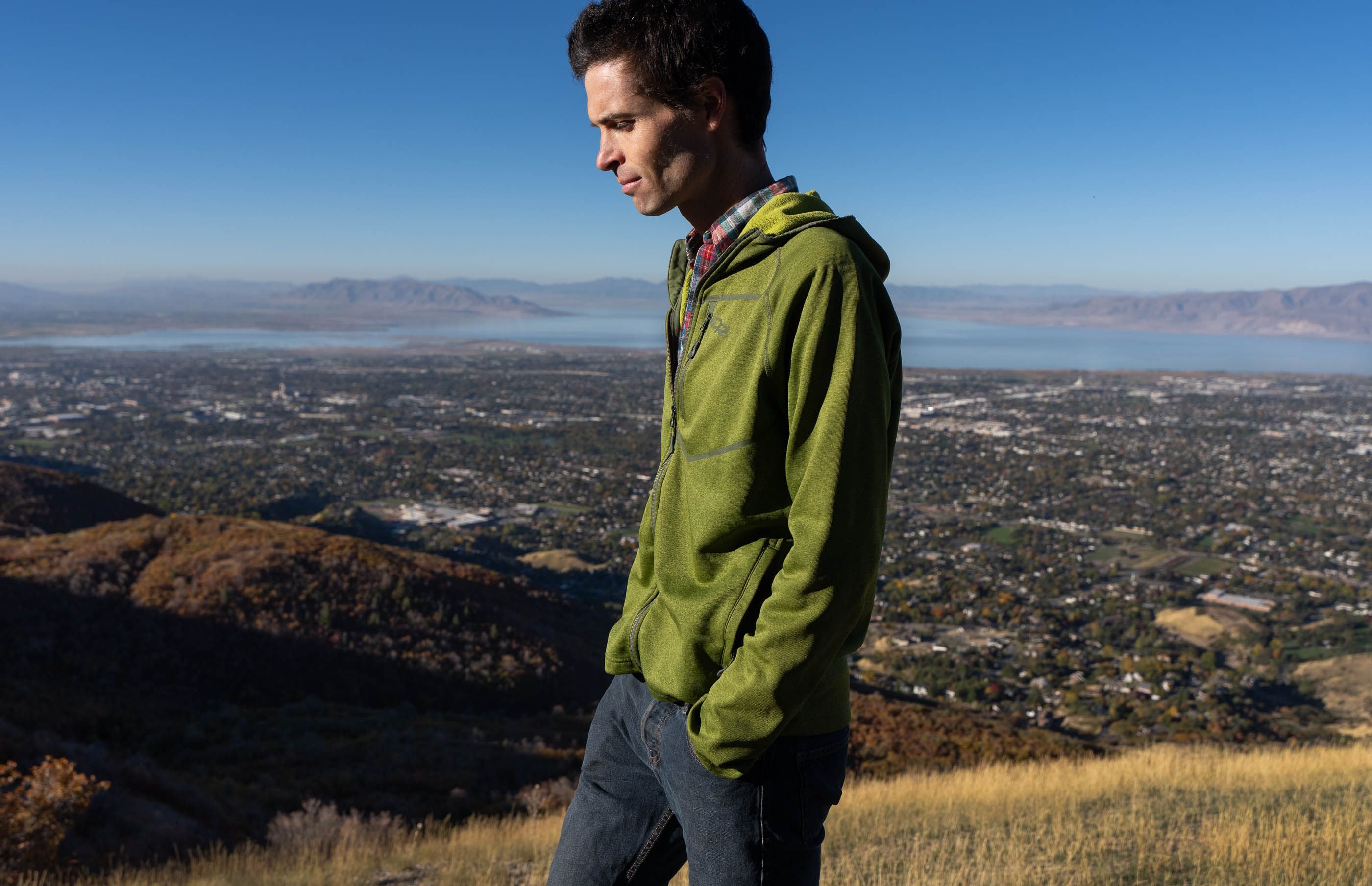
“We are submitting another ... request that we hope to use to fund the final year of [Abbott’s] research project,” the spokesperson said. “These projects are contingent upon legislative funding approval.”
It’s impossible to know which lawmakers were behind the funding that got yanked for Abbott’s grant and other watershed studies as well. Unlike for bills — including the ones that created the Utah Lake Authority or authorized selling off the lakebed — the Legislature’s appropriation process does not have the same public hearings or debate.
In an interview, Brammer said lobbyists approached him last year about Abbott’s state funding and questioned whether it conflicted with the professor’s advocacy of Utah Lake.
“I don’t know that they ever asked me to pull it,” Brammer said. “They expressed this concern, and I told him I would look into it. I don’t think it went much beyond that.”
Concerns about conflicts on the new Utah Lake Authority
The Utah Lake Commission became the Utah Lake Authority in July 2022, after Brammer’s bill passed with support from McKell in the Senate. McKell and Brammer took seats on the board. Provo Mayor Michelle Kaufusi was demoted from her position as board chair, and Julie Fullmer, the Vineyard mayor who wrote a letter in support of LRS’ project in 2020, rose to chair instead. American Fork lost its place at the table entirely. Abbott said he suspects this was also a form of reprisal.
“It was very clear ... American Fork had been sidelined because of their criticism,” Abbott said. Provo didn’t completely lose its seat, he surmised, because, as Utah County’s largest city, it was “too big and powerful.”
Kaufusi did not respond to multiple interview requests. American Fork Mayor Brad Frost declined to say whether he believed the city lost its seat due to its lack of support for LRS.
“We were disappointed that representation on the ULA board did not include American Fork City,” he wrote in an email, “considering our extensive shoreline boundary and [our] operation and maintenance of a key marina on the north side of Utah Lake. We look forward to the day our voices are heard.”
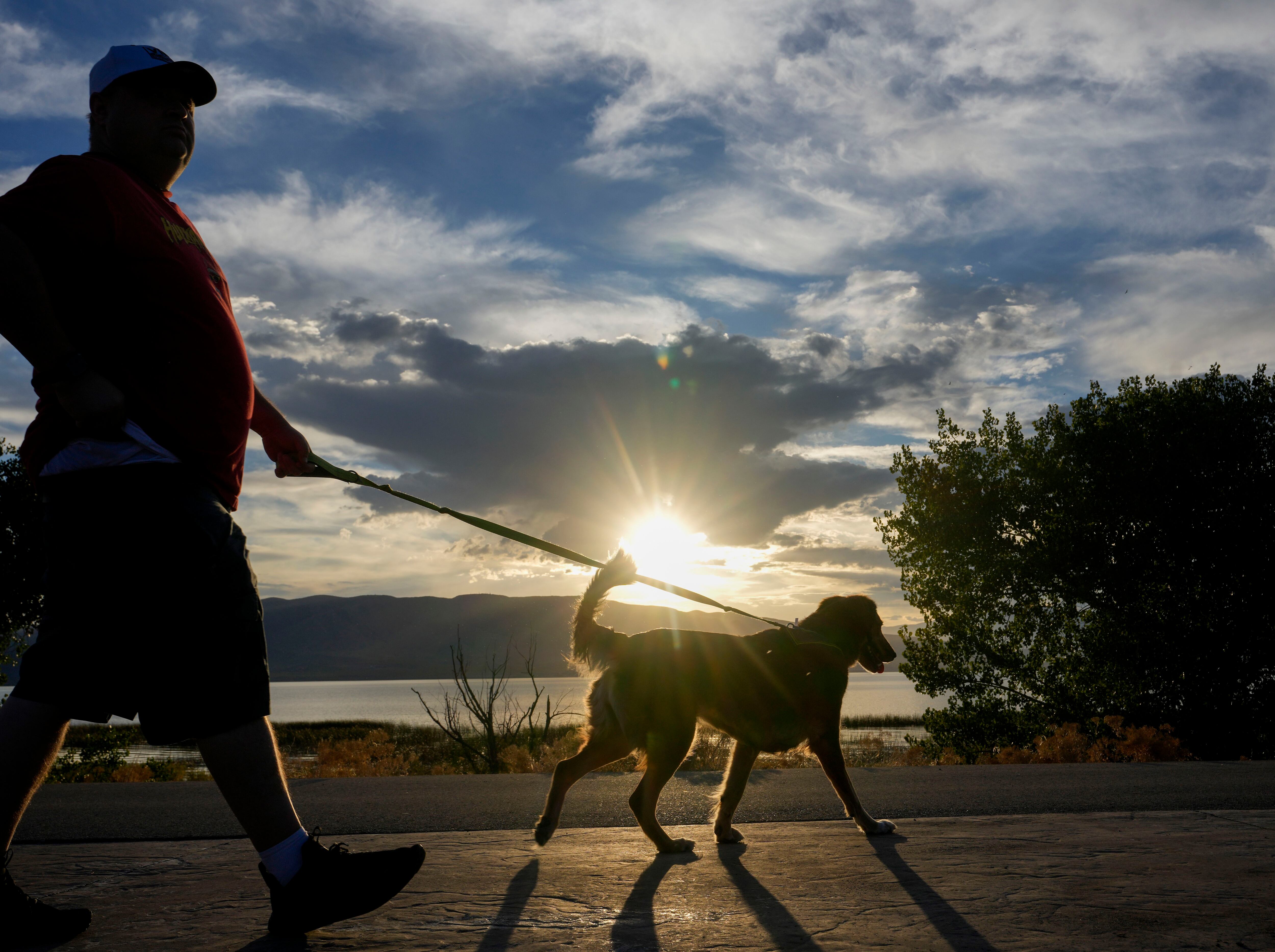
In the summer of 2022, members of Conserve Utah Valley, or CUV, sent a list of concerns to government officials about perceived conflicts of interest among Fullmer, Brammer, McKell, LRS and the lake authority. CUV is a grassroots environmental watchdog that formed after the Utah County Commission considered selling off Bridal Veil Falls to a private developer.
“Many other folks involved with it were unwilling to sign,” Peggy Climenson, a Utah County resident who helped CUV prepared their list of concerns, said of the letter, “because they were fearful of retribution.”
The group also raised concerns about Eric Ellis, the Utah Lake Authority’s executive director, who sent letters in support of LRS’ EPA loan while he was the head of the lake commission, pledging millions of dollars in state funds he did not control.
Ellis resigned from the lake authority last month and took a job as Vineyard’s city manager the same day.
The CUV letter also cited a “Lakebed Ownership Subcommittee Report” prepared by a prominent Utah water attorney the year before, as Brammer worked on drafting his Utah Lake Authority bill.
Selling off the lakebed to a private developer was likely unconstitutional, the analysis found, since the lakebed was sovereign state land managed for the good of all Utahns under the public trust. Likewise, the report stated, sovereign state land under Utah Lake probably couldn’t be handed off to a local quasi-governmental agency like the Utah Lake Authority.
CUV members worried this document never made it into the public legislative record. Their letter questioned whether Brammer had suppressed it.
“Why was that hidden from the public?” Climenson said. “To this day, it does not appear in the public legislative record.”
The lawmaker said the lakebed report was part of a broader feedback-gathering effort that was not part of the formal meeting process.
Brammer responded to CUV’s letter in an email the day after it was sent, adamantly denying any affiliation with LRS and calling the letter an attempt to “smear” him.
“I am putting you on notice,” Brammer wrote, “that if you continue to peddle false information about me, I will take appropriate action against you and the other signers of this correspondence.”
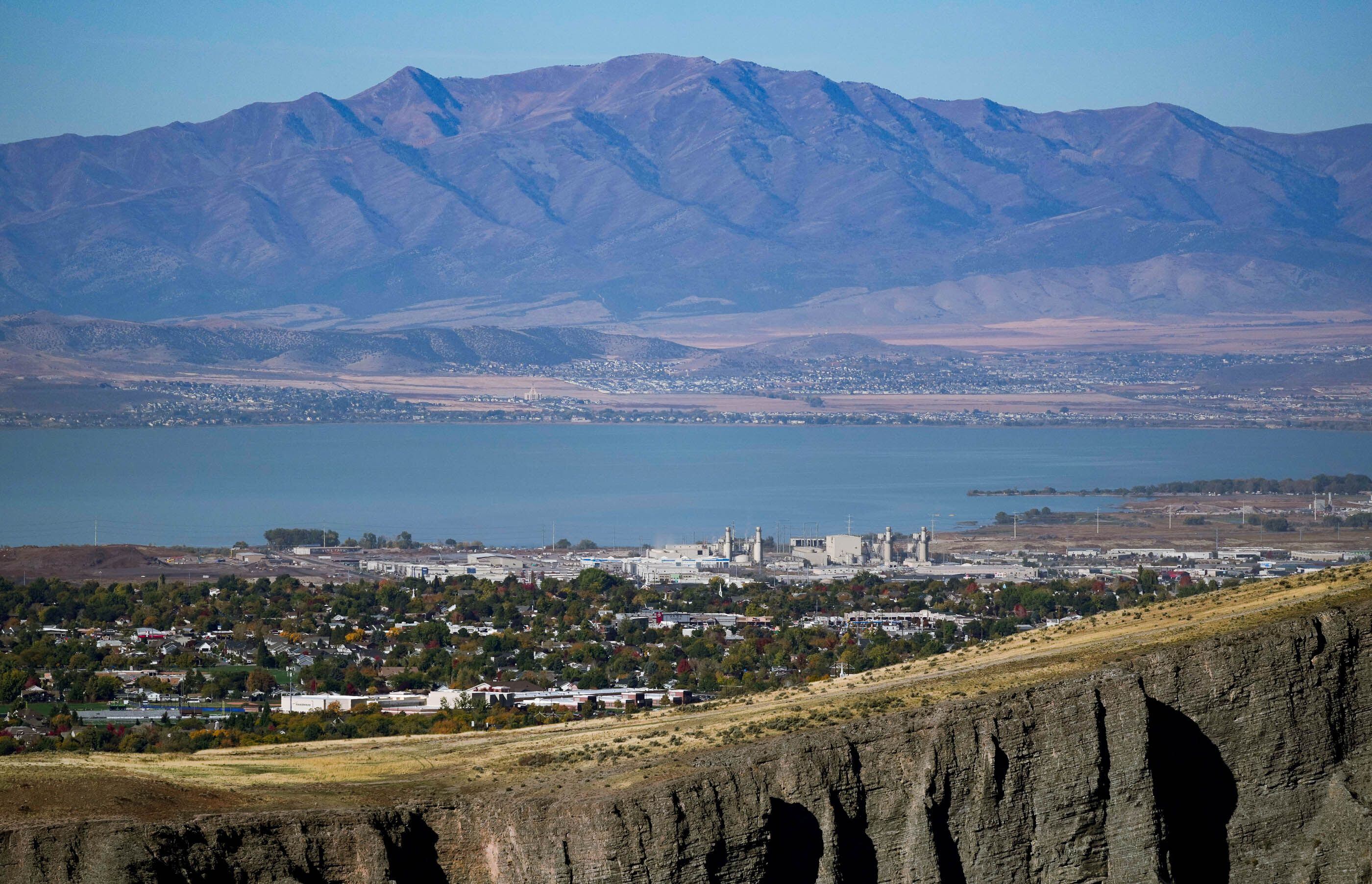
Climenson followed up and asked Brammer to clarify what he meant.
“I don’t let falsehoods fester,” he replied. “... It could go as far as a defamation suit (I am an attorney after all). Nothing you have said rises to the level of a defamation suit, but that is on the spectrum of possibilities, I suppose.”
As an experienced attorney herself, Climenson took his response as a threat.
“The kinds of questions we were asking,” she said, “we were surprised he reacted with such sensitivity.”
Lawmakers and lobbyist respond to LRS concerns
In an interview, Brammer reiterated he had no connection to LRS and did not do anything to support the lake-dredging proposal. He said he felt irked about the distraction LRS created in finding real solutions for Utah Lake, which he believes the Utah Lake Authority will accomplish.
“I was frustrated with the pace of improvements on the lake and the paralysis based on LRS’ proposal,” the lawmaker said.
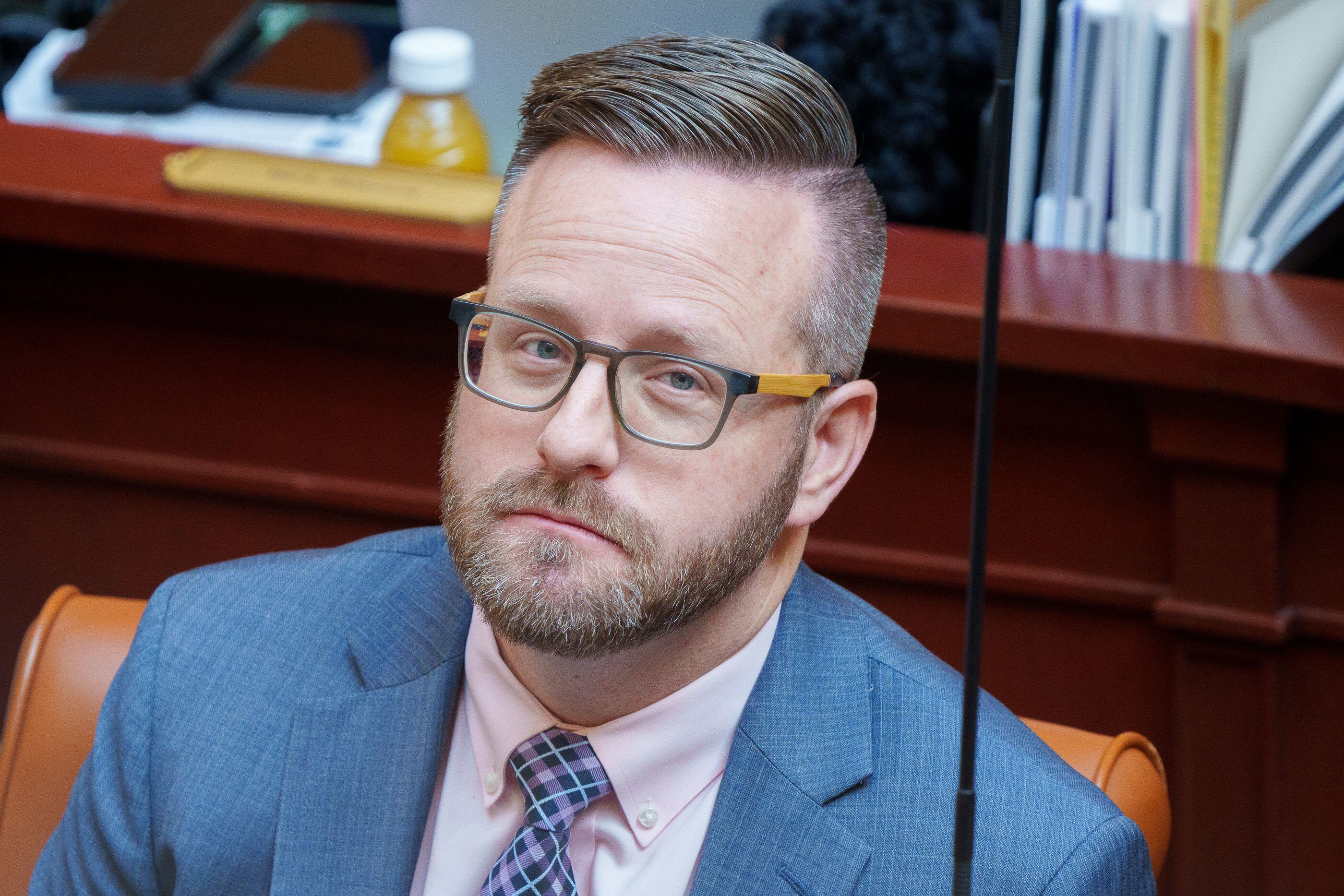
In his email to Climenson, however, Brammer wrote he felt LRS had the ability to “scuttle” his Utah Lake Authority legislation. Asked why he believed LRS had that kind of influence, Brammer responded, “they could get the votes.
“My bill was hard as it was. I didn’t need more enemies,” Brammer added. “... The only promise I gave [to LRS] was, ‘It won’t help or hurt you.’”
And American Fork’s lack of representation on the Utah Lake Authority, Brammer said, was indeed intentional — but not because of LRS.
“We wanted a board that believed in the [lake authority] project,” Brammer said, “and American Fork was very clear that they did not.”
McKell said neither he nor the other members of the Legislature did anything to penalize cities, and that he wasn’t aware Hartley was allegedly using his name in that context.
“I’m not going to let a lobbyist bully me in any way,” the lawmaker said.
On Aug. 17, 2022, FFSL presented its findings after Stratton’s legislation directed state resource managers to research whether selling off the lakebed to a private company like LRS was legally sound. The move was unconstitutional, the division found, which effectively sunk LRS’ entire business plan.
Hartley sent McKell another text two days later, complaining about Stratton and Abbott, two key figures who had called for more scrutiny of the LRS project.
“We cannot let Stratton, Ben Abbott and the deep state win,” Hartley wrote. “It is a terrible process. Are you hearing anything?”
McKell said he did not respond to the message.
Bankruptcy proceedings for LRS have since revealed Hartley had an ownership stake in LRS, in addition to working as the company’s lobbyist.
Hartley said Prospera, LRS’ main investor, had committed $20 million to the island-building project. It was his understanding, he said, LRS only received half that due to getting “spooked off” by “environmental hand-wringing.”
Had the company received all those funds, Hartley said, it would’ve continued pursuing litigation against the state over FFSL’s lakebed decision. Instead, LRS ended up dissolving earlier this year.
“I still think it’s a great project,” Hartley said. “It’s a loss to the state. It’s a loss to the citizens of Utah County, of which I am one.”
He has boated Utah Lake for the past eight years, he said, but the last time he went out there, he got stuck. He called the state’s largest freshwater lake a “dead asset.”
“Right now that lake is not useful or beneficial to 99.9% of us who live in Utah,” Hartley said. “It’s only beneficial to the 1% of those scientists and professors who study the ecology of the lake.”
Correction, 10:32 a.m., Nov. 8 • This story was updated to clarify Peggy Climenson is not a member of Conserve Utah Valley.
Editor’s note • This story is available to Salt Lake Tribune subscribers only. Thank you for supporting local journalism.


























